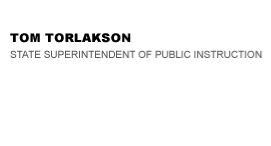October 6, 2011, Letter


Official Letter
Official Letter
October 6, 2011
Dear County and District Superintendents, Special Education Local Plan Area Directors, Special Education Administrators at County Offices of Education, Charter School Administrators, Principals, and Nonpublic School Directors:
ASSEMBLY BILL 114: OPTIONS FOR PROVIDING RELATED SERVICES FOR MEDI-CAL ELIGIBLE STUDENTS
Assembly Bill 114, Chapter 43, Statutes of 2011, made significant changes to Chapter 26.5 of the California Government Code (GC) regarding the provision of mental health services to students with disabilities. As a result of AB 114, local educational agencies (LEAs) are responsible for ensuring the provision of special education and related services which were previously provided by county mental health agencies (CMHAs) under Chapter 26.5 of the GC. As LEAs implement this transition, and as a result of changes in state statute stemming from AB 114, the Individuals with Disabilities Education Act (IDEA) serves as the statutory framework for the provision of related services. Through this transition of responsibility, questions have arisen regarding how a LEA can access Medi-Cal services for special education students. The purpose of this advisory is to provide LEAs with some options for accessing Medi-Cal services.
As the IDEA serves as the statutory framework for the provision of related services, the individualized education program (IEP) team follows the provisions in IDEA 34 Code of Federal Regulations 300.34 (related services); Education Code (EC) 56363 (special education and related services); and EC 56345 (IEP contents). Once the IEP team has determined the needs of the student and decided the required related service to support the student’s special education, the LEA will then decide on the appropriate source for the provision of the service(s) listed on the student’s IEP. The LEA may use one or more of the following options for sourcing related services to Medi-Cal eligible students:
- The LEA provides related services on the IEP using LEA employed qualified staff or contracted qualified staff and pays for the services. The LEA does not seek Medi-Cal reimbursement.
- The LEA uses the LEA Medi-Cal Billing Option Program. Through this program, the LEA employs or contracts with qualified practitioners to provide the related service(s) on the IEP, pays for the service(s), and submits a claim for reimbursement through Medi-Cal. In order to use this option, the LEA must meet the following administrative conditions:
- The LEA must be an enrolled LEA Medi-Cal Billing Option Program provider by completing the Provider Participation Agreement (PPA) and must join, or form, a collaborative.1
- The IEP-related service must also be a Medi-Cal LEA Medi-Cal Billing Option Program approved/qualified service.
- The LEA must provide the service through a practitioner who is:2
- A qualified employee of the LEA
- A qualified private contractor
- Reimbursed funds must be reinvested through decisions made by the LEA Medi-Cal Billing Option collaborative.
- Medi-Cal reimbursement considerations:
- The program reimburses 50 percent of the cost of the provided Medi-Cal eligible related service (per rate schedule).
- It does not include a county or non-federal match.
- From the amount reimbursed for rendered Medi-Cal qualified services, a portion is withheld (currently 4.5 percent) to cover administrative costs.
- At the end of the fiscal year, the LEA must complete a Cost and Reimbursement Comparison Schedule (CRCS) to reconcile costs against reimbursement received.
- The program reimburses 50 percent of the cost of the provided Medi-Cal eligible related service (per rate schedule).
- Once the LEA recognizes that the related service on the IEP is a specialty mental health service, the LEA collaborates with CMHA to secure the Specialty Mental Health service under the county Mental Health Plan (MHP) and the Early and Periodic Screening, Diagnosis, and Treatment (EPSDT) Program. The LEA can either:
- Enter into a contract or Memorandum of Understanding with the MHP for a specialty mental health service or an array of specialty mental health services
- The MHP uses a qualified county employee or contracts with a county-certified MHP community provider to provide the IEP related service.
- The MHP incurs the full cost and pays for the provision of the related service using available local allocations until such allocations are exhausted.
- The MHP files a claim to the state for the federal Medi-Cal reimbursement for the related service.
- The MHP would undergo the yearly reconciliation and cost settlement process for the costs of providing the specialty mental health services.
- The MHP uses a qualified county employee or contracts with a county-certified MHP community provider to provide the IEP related service.
- Request to become an MHP-certified provider of Medi-Cal specialty mental health services from the county MHP. If the county MHP certifies the LEA as an organizational provider:
- The LEA would provide the specialty mental health service through an LEA-qualified employee and submit a claim to the MHP for reimbursement.
- The MHP would incur the full cost and pay for the provision of the related service using available local allocations until such allocations are exhausted.
- The MHP would file a claim to the state for the federal Medi-Cal reimbursement for the related service.
- The MHP would undergo the yearly reconciliation and cost settlement process for the costs of providing the specialty mental health services.
- The LEA would provide the specialty mental health service through an LEA-qualified employee and submit a claim to the MHP for reimbursement.
- MHP Medi-Cal reimbursement considerations:
- MHPs incur the full cost of providing specialty mental health services, and then submit claims to the state to receive 50 percent federal Medicaid reimbursement.
- For fiscal year 2011–12 only, AB 100 is providing MHPs with Mental Health Services Act (Proposition 63) funds as follows: a one time allocation of $98.6 million for IEP related services formerly addressed by the repealed AB 3632; and $579 million for EPSDT. Once these funds are exhausted, contracts between the LEAs and MHPs can stipulate the coverage of additional costs.
- For fiscal year 2012–13, and in subsequent years, it is projected by the Legislative Analyst’s Office (LAO) that, through the Realignment of 2011 (AB 118), a portion of sales tax revenues will be shifted to counties for a number of realigned programs, including EPSDT.3
- MHPs incur the full cost of providing specialty mental health services, and then submit claims to the state to receive 50 percent federal Medicaid reimbursement.
Enclosed in this package, you will find a chart aligned with the contents of this letter which graphically conveys the options available to LEAs for securing Medi-Cal services and reimbursement (Enclosure 1). Also enclosed is an informational document which describes the LEA Medi-Cal Billing Option Program (Enclosure 2). A second informational document providing details on MHPs and Specialty Mental Health Services is also enclosed (Enclosure 3).
If you have any general questions regarding this subject, please contact the Policy and Program Services Unit of the Special Education Division by phone at 916-323-2409.
Sincerely,
Original signed by Fred Balcom. Hard copy of the signed document is available by contacting the Special Education Division's Director's Office at 916-445-4602.
Fred Balcom, Director
Special Education Division
FB:rb
Enclosure 1 [http://www.cde.ca.gov/sp/se/ac/documents/encl1.pdf] (PDF)
Enclosure 2 [http://www.cde.ca.gov/sp/se/ac/documents/encl2.doc] (DOC)
Enclosure 3 [http://www.cde.ca.gov/sp/se/ac/documents/encl3.doc] (DOC)
Footnotes
1 For more information on the collaborative and the LEA Medi-Cal Billing Option Program please see Enclosure 2.
2 For more information on practitioner qualifications please see Enclosure 2.
3 Please see the August 19, 2011, LAO Executive Summary Web page at http://www.lao.ca.gov/reports/2011/stadm/realignment/realignment_081911.aspx.
